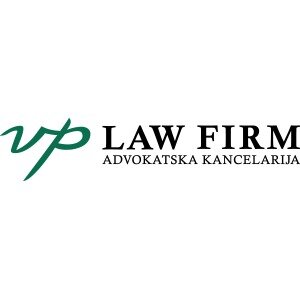Best State, Local, and Municipal Law Lawyers in Serbia
Share your needs with us, get contacted by law firms.
Free. Takes 2 min.
Or refine your search by selecting a city:
List of the best lawyers in Serbia
About State, Local, and Municipal Law in Serbia
State, Local, and Municipal Law in Serbia encompasses the legal framework that governs the relationships and interactions between individuals, businesses, and governmental entities at various administrative levels. This branch of law deals with issues including, but not limited to, local government operations, municipal finance, zoning and land use planning, public transportation, public safety, and local taxation. The legal framework is supported by the Constitution of Serbia, various national laws, and specific municipal regulations that each jurisdiction may enact to address its unique needs and concerns.
Why You May Need a Lawyer
Individuals or businesses may require legal assistance in the field of State, Local, and Municipal Law in various circumstances, such as:
- Understanding or contesting local zoning laws and land use regulations.
- Disputes with local government agencies or authorities, including administrative and legal appeals.
- Issues related to municipal taxes or penalties.
- Dealing with licenses and permits required for businesses or construction projects.
- Advising on compliance with local legislation and regulations.
- Participating in public tenders or contracts with local governments.
- Handling property disputes involving public or municipal land.
Local Laws Overview
Key aspects of local laws in Serbia that are relevant to those engaging with State, Local, and Municipal Law include:
- Zoning and Land Use: Local zoning laws determine the permitted uses of land and layout of various urban areas, which can significantly affect residential and business activities.
- Public Procurement: Local governments have specific rules for tendering contracts, which businesses must follow to secure public sector jobs.
- Licensing and Permits: Various activities, from starting a business to construction, require specific permissions from local authorities.
- Local Taxes: Municipalities have the power to levy taxes, and understanding these can help in planning financial strategies for businesses and individuals.
- Municipal Services: Laws around services such as waste management, public transport, and utilities impact day-to-day operations and strategic planning.
Frequently Asked Questions
What is the role of municipal governments in Serbia?
Municipal governments in Serbia are responsible for local public services, urban planning, local economic development, and implementing policies within their territorial jurisdiction. They operate under national laws but have autonomy to address local issues.
How do zoning laws affect property development?
Zoning laws regulate land use and dictate what type of structures can be built in specific areas. Changes in zoning can impact property development plans and may require legal intervention if conflicts arise.
What is the process for obtaining a business license in Serbia?
The process involves submitting an application to the local government, meeting specific legal requirements, and paying any applicable fees. Legal assistance can help ensure compliance with all procedural and regulatory obligations.
Can I appeal a decision made by a local authority?
Yes, decisions made by local authorities can be appealed through administrative or legal channels. Understanding the appeal process is crucial for a favorable outcome, and legal guidance is often recommended.
How do local taxes differ from national taxes?
Local taxes are levied by municipalities and can include property taxes, business taxes, and fees for services. They are separate from national taxes and are used to fund local government operations and public services.
What are some common disputes involving local governments?
Common disputes can arise over land use and zoning, tax assessments, service delivery, and regulatory compliance. Legal professionals can assist in navigating these disputes through negotiation or litigation.
Are there specific laws governing public tenders in Serbia?
Yes, public procurement laws establish how tenders are issued and awarded. Compliance with these regulations is crucial for businesses seeking contracts with local authorities.
What legal resources are available for those needing assistance with State, Local, and Municipal Law?
Resources include local legal firms, online databases of municipal regulations, and guidance from professional associations specializing in public law.
How can I stay informed about changes in local laws?
Regularly reviewing municipal websites, subscribing to legal bulletins, and consulting with legal professionals are effective ways to stay updated on changes in local laws.
What is the importance of having a lawyer experienced in municipal law?
An experienced municipal lawyer can provide valuable insights into local legal processes, help navigate complex regulations, and advocate on your behalf in disputes with local authorities.
Additional Resources
For further assistance and information, consider contacting the following resources:
- Ministry of Public Administration and Local Self-Government: Provides oversight and guidance on local governance matters.
- Association of Serbian Municipalities: Offers resources and support to municipal governments and stakeholders.
- Legal Chambers and Law Firms: Many specialize in public and municipal law, providing expert advice and representation.
- Online Legal Portals: Websites offering legal documentation, guides, and updates on Serbian law.
Next Steps
If you require legal assistance in the field of State, Local, and Municipal Law in Serbia, consider the following steps:
- Assess Your Needs: Clearly define the legal issue you are facing or anticipate, and gather all relevant documentation.
- Consult a Lawyer: Choose a legal practitioner with expertise in municipal law to provide guidance on your specific circumstances.
- Engage with Local Authorities: If appropriate, communicate directly with municipal authorities to seek resolutions or clarifications.
- Stay Informed: Regularly update yourself on changes to local laws and regulations that may impact your situation or plans.
- Consider Mediation: For disputes, explore mediation or alternative dispute resolution as a potential path to a quicker and less adversarial solution.
Lawzana helps you find the best lawyers and law firms in Serbia through a curated and pre-screened list of qualified legal professionals. Our platform offers rankings and detailed profiles of attorneys and law firms, allowing you to compare based on practice areas, including State, Local, and Municipal Law, experience, and client feedback.
Each profile includes a description of the firm's areas of practice, client reviews, team members and partners, year of establishment, spoken languages, office locations, contact information, social media presence, and any published articles or resources. Most firms on our platform speak English and are experienced in both local and international legal matters.
Get a quote from top-rated law firms in Serbia — quickly, securely, and without unnecessary hassle.
Disclaimer:
The information provided on this page is for general informational purposes only and does not constitute legal advice. While we strive to ensure the accuracy and relevance of the content, legal information may change over time, and interpretations of the law can vary. You should always consult with a qualified legal professional for advice specific to your situation.
We disclaim all liability for actions taken or not taken based on the content of this page. If you believe any information is incorrect or outdated, please contact us, and we will review and update it where appropriate.
Browse state, local, and municipal law law firms by city in Serbia
Refine your search by selecting a city.















